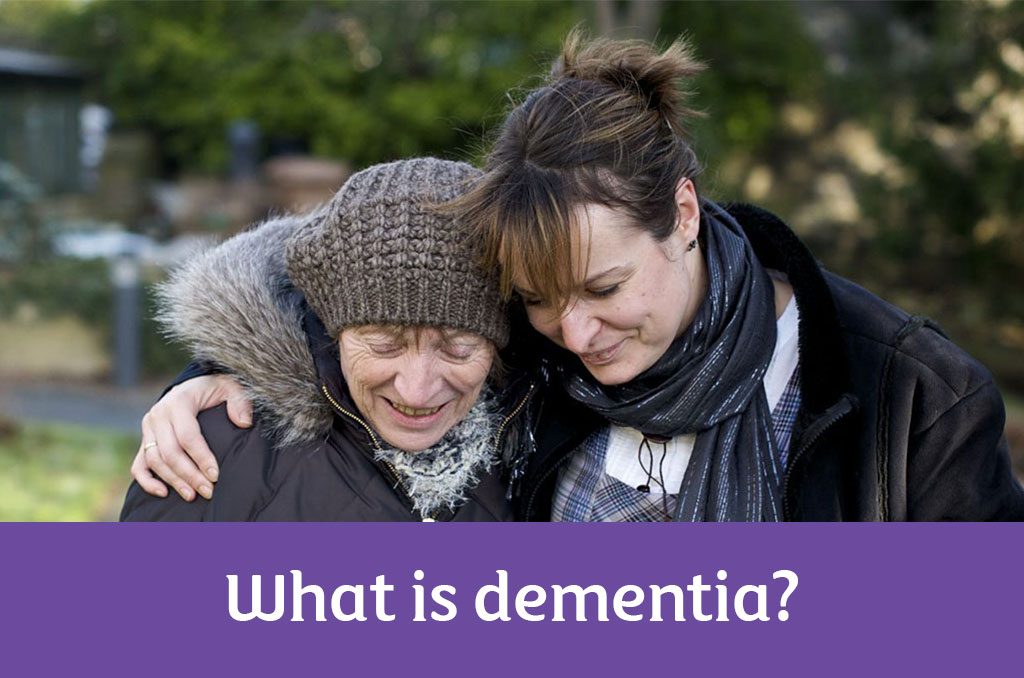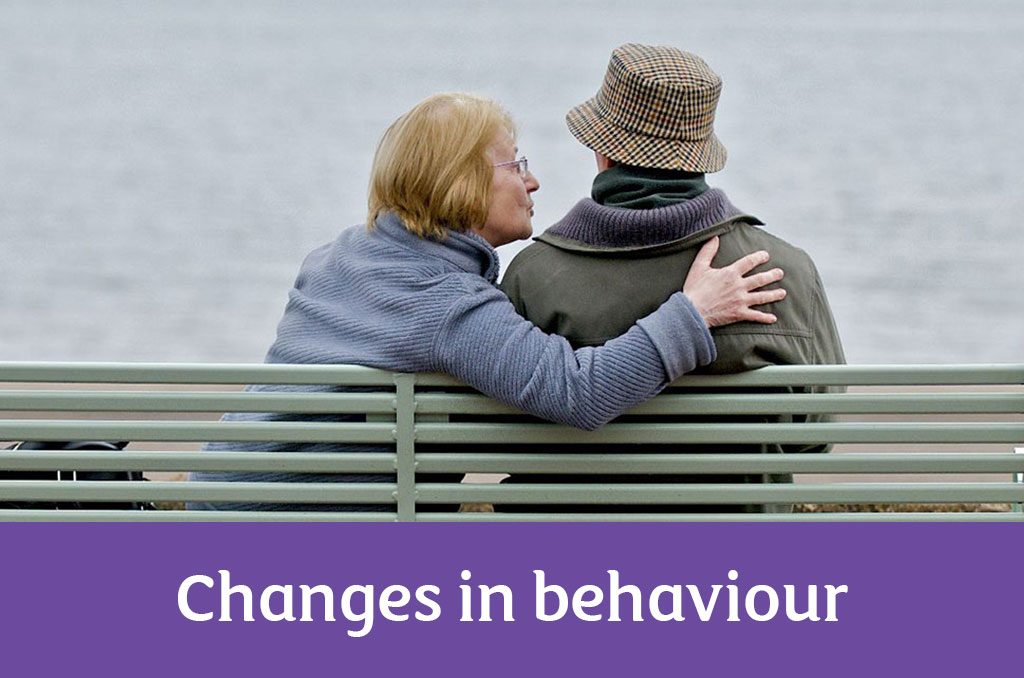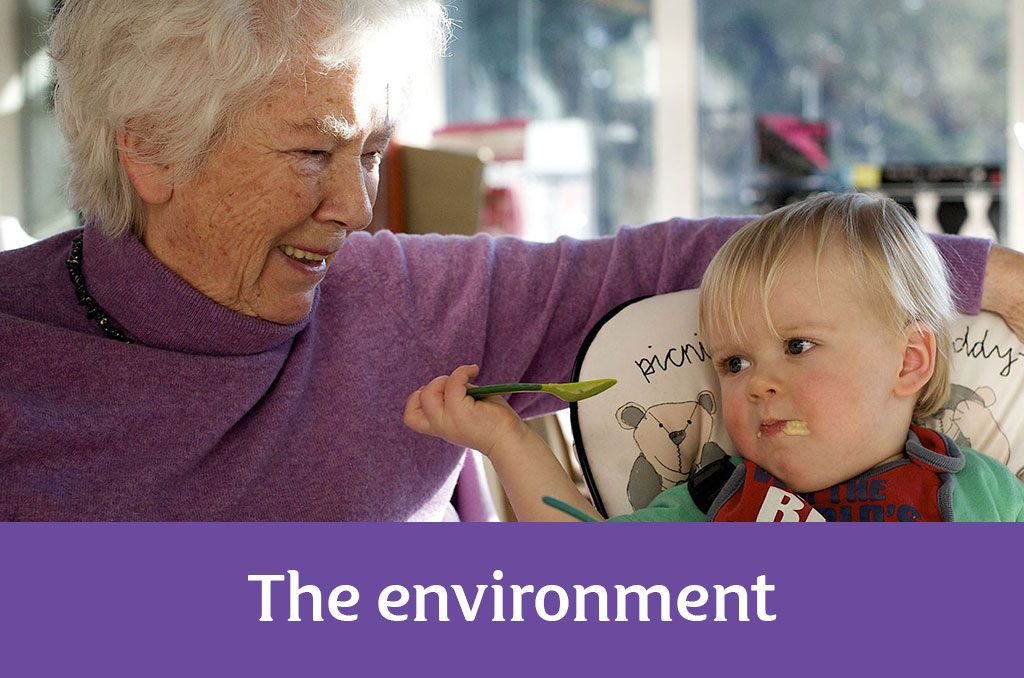Communication

The Importance of Communication
The world is a very noisy place. From the sounds of nature to the noise of traffic or construction on a busy street, we are constantly surrounded by sound. If you were to stop reading for a moment to turn on the television, or step out into the street, you might notice another kind of noise, too.
Talking. Lots, and lots, of talking. In fact, we talk so much that we have had to create more words to describe it! We might go and have a word with a neighbour, stop to speak to a friend, have a chat, or blether to the hairdresser. We make small talk with shop assistants, gossip with family members or just stop in to have a cup of tea and a good natter. In fact some studies suggest that we might speak almost 50,000 words a day!
But what does this have to do with dementia? The very short answer is, simply, ‘a lot’.
When we remember that having a dementia diagnosis is about more than someone’s memory, we can start to make sense of a lot of the difficulties people who live with dementia can experience when communicating with people. After all, talking is complicated! In order to speak with anyone, we first have to hear what they say and our brain has to unpack their words into meaning. We must then decide what we would like to say back- and whether we should answer honestly, or find a kinder way of saying what we mean- choosing our words, forming them in our mouth, and getting them out in a way that others can hear them.
Because this process is so complicated, and has so many parts, it is important that we not only think about how we talk to people with dementia, but how we listen to and help people with dementia to communicate.
This page gives a brief overview of some of the ways that dementia can make communicating more difficult for people with dementia, as well as exploring how the environment can affect someone’s ability to communicate. Further down the page we touch on how our behaviour can make it more difficult for people with dementia to take part in conversations and describe scenarios where making small changes to how we communicate might make a big difference to people living with dementia.
How Dementia Complicates Communication
Although it is difficult to predict if, or how, a person’s dementia may affect their ability to communicate ahead of time, there are a number of problems that are fairly common for people with dementia. There are two main ways that dementia can affect someone’s ability to communicate- it can interfere with their ability to get their point across, or it can interfere with their ability to process what others are saying.
Ability to get their point across
Problems can include:
Ability to process information
- Finding it difficult to ‘find’ the word they are looking for- even when it is ‘on the tip of their tongue’
- Difficulty articulating what they mean or getting their point across.
- Speaking in an unusual way, or in an unusual pattern that is difficult for others to follow.
- Repeating particular words or phrases.
- Feeling embarrassed about their difficulty talking.
- Saying things without thinking about the consequences.
- Using inappropriate language, or saying things that make others uncomfortable.
- Loss of ability to sign or gesture.
- Reduction in and eventual loss of speech over time.
- Difficulty understanding spoken or written words.
- Struggling to keep up with a conversation.
- Not realising that someone is speaking to them, and not to someone else.
- Becoming confused or losing track of what is being said.
- Finding it difficult to focus on the voice of one person when lots of other noises are happening.
- Feeling overwhelmed by information.
Frustratingly, these are not the only problems that can make it difficult for people with dementia to communicate with those around them. As facilitators and carers, we have to ask other questions too. Some of these questions might be difficult to answer, such as;
- Is the person in pain?
- Are they anxious?
- Might the person have a fever or an infection?
- Are they unwell?
- How is their mental health? Are they depressed?
- Are they very tired?
- Are they hungry?
- Have they taken their medication?
While others might be easier to identify and act on:
- Is the person wearing their glasses?
- If they are, are they the right glasses (are they wearing reading glasses when they should be wearing distance glasses) and the right prescription?
- Does the person have tooth pain?
- Do their dentures fit?
- Is the person wearing their hearing aid?
- Do they need the toilet?
Because there are so many factors that can change the way that a person with dementia communicates, it is often up to the family member, carer, or friend to ‘play detective’ and try and figure out where the process is going wrong.
It is important to realise, however, that just because the person with dementia isn’t clearly explaining the source of the problem in the way that we were expecting, it doesn’t mean that they aren’t communicating their needs. How a person moves and what they say, or don’t say, are all clues that can be used to understand what they need.
One example of this might be where a person with dementia begins to ask, repeatedly, for someone who died many years ago; for example, an older lady who asks for her mum or dad when she feels distressed. In these moments the words that are used are often less important than the feelings they communicate. Asking for a parent might indicate that the person feels afraid, anxious, or vulnerable, for example, as we use old patterns of communication to ask for what we need; reassurance, comfort and safety.
Such moments might be difficult to understand, because we do not live with dementia- and even if we did, it might not affect us in the same way. Nevertheless, in these moments it is important to respond to the person’s need. If Mrs A is asking looking for her mum, for example we might:
- Touch her gently on the arm
- Speak kindly and gently
- Be present in the moment and be interested in what they are saying.
Using these strategies might not accomplish what Mrs A is asking for, in that we cannot bring her mother to her, but it might address her need to feel secure and safe, reducing her anxiety before it becomes more intense. We are going to discuss other ways that our communication can help a little further on
The Role of the Environment in Communication
Another important factor to think about when communicating with people with dementia is the environment you are in in that moment. Agnes Houston, who lives with dementia, highlights a number of ways that the environment can make it more difficult for people with dementia to think and to communicate in her booklet on Dementia and Sensory Challenges The leaflet captures the experiences of a number of people with dementia, who say:
“In noisy environments I just can’t think… my brain shuts down“
Agnes
“Can’t stand music in shops… find myself getting very angry… it was torture“
Peter
“The Noise hurts me“
Rozel
It is clear, then, that we have to think carefully about the environment around us when we communicate with people with dementia. Things to consider include;
- Is the environment comfortable? (Might the person be too hot, or too cold? Are they stood, or sat in a way that might be uncomfortable?)
- Is the environment familiar?
- Are you in an environment that is relaxing (like a familiar place, or at home) or somewhere where the person might be stressed (like in hospital, at the dentist, or in an unfamiliar location).
- Are there lots of distractions (remember, these could be noises, sights, or smells).
- Is the location crowded?
- Is there enough light for the person to see your face clearly?
- Is there a loud or distressing noise nearby- like a crying baby or ambulance siren?
- How did the person get to where you are- was the journey stressful? Might they be tired or need the toilet? Do their feet hurt?
- Is the television on behind you?
While these questions might not cover all of the factors that might be making it difficult for the person with dementia to focus on the conversation, they are a good example of the kinds of factors that might be worth thinking about if someone’s communication ability changes a lot between places. We talk about the importance of the environment for people with dementia in more depth on our Environment page.
Managing Our Communication to Help People with Dementia
Even after we have considered the ways that dementia might be making it difficult for someone with dementia to communicate, thought about whether they are in pain or feeling unwell, made sure they are wearing their hearing aids or glasses, and checked that the environment isn’t making it difficult to communicate, there are still things that we can do to help people with dementia communicate.
This time, we must look at ourselves.
Did you know that what we say and the words we use account for only about 7% of our total communication?
This is why your Aunt might think you didn’t like your gift, even though what you said was “Wow, Aunt B! Thankyou, I’ve always hand-knitted, odd-sized, lime green unicorn socks for work!”
This is just as important when we talk with people with dementia, and so its worth thinking about the following questions:
Where am I? – Am I in front of the person? Am I at their height or am I looming over them (if they are seated)? Am I too far away, or too close?
How am I acting? – Do I look interested in what they have to say? Am I facing towards the person, am I watching their face, am I making eye contact? Am I being impatient? Am I annoyed?
What am I (wearing)? – Can the person see my face and mouth? Am I wearing a large scarf, or reflective sunglasses?
How am I communicating?- Am I speaking clearly? Can the person hear me? Am I using gestures? Am I raising my voice?
Once we have thought about these questions, there are a number of steps that we can take to improve how we communicate. These include:
- Making sure you have the person’s attention before you begin- consider using their name or gentle touch to get their attention.
- Keep what you say brief and simple but don’t use a childish tone of voice.
- If you are giving instructions or asking someone to do something, keep it straightforward.
- Think about how you use gestures- do your movements send the same message as your words?
- Be calm and patient- remember, the person with dementia might have to work harder than you think to listen to what you’re saying, understand your meaning, and choose an answer.
- Be prepared to ‘play detective’ and think about the meaning behind the words.
- Provide the person with visual and auditory clues about what is going on.
- Refer to simple aids, such as white boards, calendars and diaries where possible.
Common Traps and Mistakes in Communication
Trap 1: Sneaky Memory Tests
When we live without dementia, it is easy for us to assume that everyone’s brain will be able to do what ours can do. We might expect a colleague to be able to tell us about their drive to work, or how their weekend was, for example, but making these assumptions can backfire when the person we are speaking to has dementia. Below is an example of a simple scenario that might be seen as a ‘test’ by someone living with dementia.
The Family Photograph
“When we go to visit mum and we think well if I ask who is in the photograph that may help mum to remember members of the family…
But we see mum starting to get anxious when we say… ‘Who is this mum?’ ‘You know who this is! It’s Jamie at his wedding last month! You must remember it was only a few weeks ago!’
We may be thinking this will jog mums memory and keep her brain active… but if we see mum becoming anxious then it is testing memory and people can withdraw or become anxious which will make it even harder to retrieve the information.
So… Instead of asking mum who is in the photograph, look at the photo together and speak about who is in the photo. ‘Look at Jamie in his wedding photo doesn’t he look handsome? Oh and there is Rebecca and Sam we were lucky to have had good weather that day.’ By us speaking about who is in the photo it does not put extra pressure on mum to retrieve those memories therefore it may be more likely she may be able to contribute in some way. Therefore not causing increased anxiety which can make it even more difficult for a person to retrieve information, as the harder they try the more anxious they may get and the more difficult it is to get to what was asked of us.”
Trap 2: Giving Too Many Instructions at Once
For some people, their dementia can make it difficult to make sense of a lot of information at once. This might affect their ability to follow directions or recipes, or mean that they get part of the way through a task without being able to complete it. One of the ways that we can avoid this is through changing the way that we ask people with dementia to do things by breaking it down.
For example, if you were to say:
“Mum! Could you put your jacket on? I need to find my keys, and we need to run into town in the car and get a wedding present for Jamie before the traffic gets bad and the shops shut.”
That might be too much information for someone with dementia to process at once, as it includes
- what you want them to do (put their jacket on),
- what you need to do (find your keys, drive the car),
- what’s going to happen now (go into town, buy a present)
- what’s happening in the future (Jamie’s wedding)
- what you don’t want to happen (getting stuck in traffic, the shops closing etc)
Instead, think about what has been discussed so far, and how you might break this down. Then you might; make sure mum is listening, ask her to put on her coat. Once she has done that, explain that you are going in the car, and then once she has processed that, explain that you’re going into town because you need to pick up a present for Jamie’s wedding. Not only does breaking the instruction down in this way provide more processing time, but each step acts as a ‘clue’ to the next. Putting on a jacket supports the idea of going out, getting in the car supports the idea of going somewhere and so on.
Trap 3: Getting into Arguments.
For many people with dementia, the progression of their disease will make it more difficult to see things from the point of view of others. This is important to remember if you find yourself in a heated discussion or an argument with someone with dementia.
If the person cannot see the subject from your perspective, you cannot persuade them to ‘see things your way’ or that you are right. Tommy Dunne reflected on this in his dementia diary here he says:
“You cannot argue with person living with dementia, you will not make them change their mind. If the PLWD believes they are right then they are right. If they believe their mum/dad is alive then ‘they are’. […] If you want to communicate with us then you have to enter our world and that could be any place in time.”
It is important to remember that arguing is stressful, for the person with dementia and for you. Often the person may not be trying to be difficult- instead, how they think has been affected by the changes in their brain, brought about by dementia.
This is not their fault- and it is not yours.
Instead of arguing, consider if it is really important that the person with dementia ‘sees things your way’. If it is a matter of safety, or involves keeping them healthy, the answer may be yes and you might need to find support. If the answer is no, ask yourself; is it worth having the argument, if their dementia means they might never see it from my perspective? The answer may be no.
Read more about communication for people with dementia through the DSDC resources. If you live in Scotland you can request the 10 Helpful Hint series for free, thanks to funding
Explore more …





